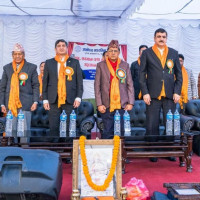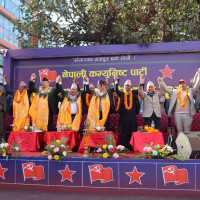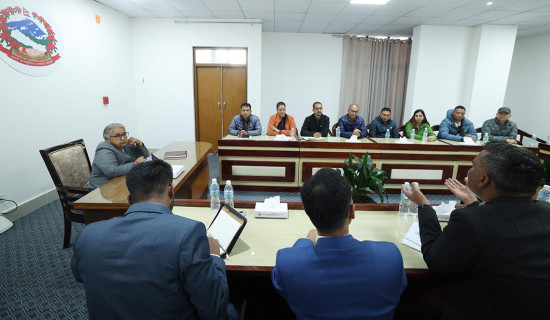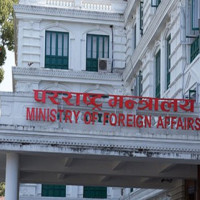- Monday, 1 December 2025
Facilitating Travellers On Visit Visa
When flawed policies, strategies or laws are in place, citizens are doomed to go through unnecessary glitches. So, such vital documents must be drafted carefully. Inputs from experts, citizens and other stakeholders should be taken to make public policies more practicable and effective. Public bodies can deliver services to people in a desired and efficient manner only when citizen-friendly rules and guidelines are implemented. With most government officials rarely found willing to carry out their duties in a responsible and accountable way, service recipients are bound to face anomalies like dilly-dallying and bribery. In some situations, they are even denied services that they are entitled to receive. Such occurrences really cause much frustration to them.
Public offices related to land revenue, transport, taxation, industry registration, and immigration, among others, are often blamed for not paying due attention to citizens. Although those offices seem to have set up hoarding boards with the citizens’ charter, service seekers frequently complain that they have to experience hassles in the course of receiving services. However, some offices appear to have made significant improvements in terms of transparency and accountability, with the availability of digitised services. But most offices still have to make lots of reforms to upgrade their service quality.
Bad governance
The immigration office at Tribhuvan International Airport (TIA) had long been lashed for its bad governance. Immigration employees were accused of forcing visitors, especially foreigners, to give them some money as a graft even during the Visit Nepal Year 1998. People from the tourism industry often used to quote employees as saying ‘No change, sir’ to their foreign guests after having paid foreign currency (US dollar or Euro) for the visa fee. That sort of behaviour on the part of the responsible officials was detrimental to the country’s reputation as a preferred tourist destination. It became the talk of the town throughout that important eventful year as tourism entrepreneurs used to highlight that immigration-related issue at every forum, calling for immediate, tangible reforms in the immigration governance.
But, even subsequent years witnessed the continuation of the problem in one form or the other. Many immigration and security officials were under investigation for numerous charges, including the misuse of red passports. The immigration problem became more complicated in recent times, with a strong racket getting involved in human trafficking in the name of a visit visa. The issue of visa irregularities was raised even in the federal parliament. The Commission for the Investigation of Abuse of Authority (CIAA) raided the immigration office at TIA and detained Tirtha Raj Bhattarai, a former chief immigration officer, for investigation. Bhattarai was suspected of having worked in collusion with human traffickers and travel agents to facilitate people to travel abroad on a visit visa. He was alleged to have charged as much as Rs. 400,000 per person for promoting the illegal business. High-level officials at the Ministry of Home Affairs and other employees working at the TIA immigration had also been part of the racket.
In that scenario, opposition political parties had disrupted even the House proceedings for many days, demanding the then Home Minister Ramesh Lekhak’s resignation on moral grounds. But Lekhak refused to resign. Instead, the KP Sharma Oli-led government formed a high-level probe committee under former Chief Secretary Shanker Das Bairagi as its coordinator. The panel was mandated to investigate the irregularities and suggest policy, legal, and structural reforms in immigration governance.
Meanwhile, as recommended by the probe panel, the new government has come up with a passenger-friendly policy to stop hassling individuals travelling abroad on a visit visa. The government has revised the Immigration Procedure, 2065 with a view to easing the travel process for citizens and checking irregularities seen in the immigration services. In line with the amended guidelines, an individual willing to go abroad on a visit visa requires to submit a passport valid at least for six months, visa from the concerned country, one-way air ticket and a self-declaration document.
The concerned individual has to make a self-declaration by mentioning that s/he will be responsible for any consequences of his/her travel. With growing job scarcity within the country, many youths want to go overseas in search of a better job. But, they are likely to land in troubles as well. So, the government has incorporated the provision of self-declaration in the guidelines. The previous guidelines had provisions of a two-way air ticket, at least US dollar 500 and hotel booking slip.
Respite
Another important feature of the new guidelines is that the concerned immigration officer will be held accountable for losses incurred by the traveller if the former prevents the latter from travelling without a sensible reason. With this provision, travellers journeying on a visit visa will not have to return home from the airport itself. In the past, there were several provisions, including a six-point standard, to check travellers travelling on a visit visa. As there was a strong network of immigration employees, middlemen, travel agencies and airline agents at TIA, it was almost impossible for visit visa travellers, especially those from rural areas, to get through the immigration process without falling into the trap of the racket. The new rule has given a great respite to travellers. This is really an important step towards facilitating Nepali travellers. It has also protected people’s constitutional right to free movement.
The Department of Immigration (DoI) has also urged all Nepali travellers to directly contact official agencies and go through proven procedures to avoid potential fraud. Everyone must be aware of their destination and purpose. They must also stay away from intermediaries to make their journey hassle-free. It is necessary for local governments and other public institutions to spread this information to the general public so as to save them from the clutches of middlemen and other tricksters.
(The author is a former deputy executive editor of this daily.)

















